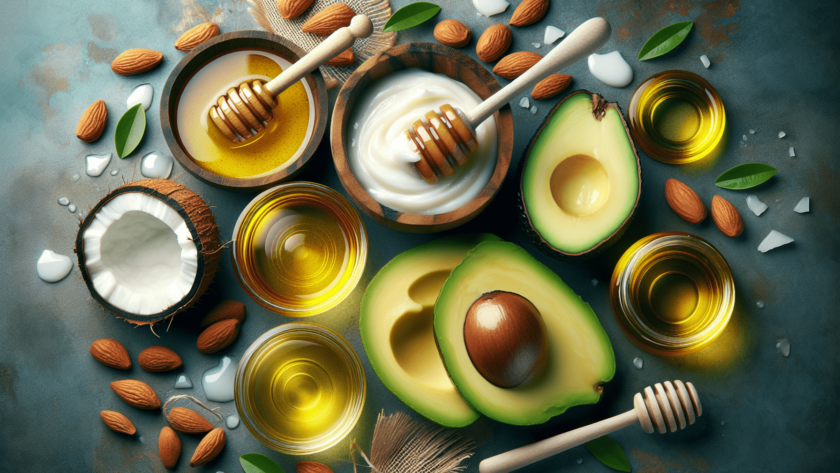Welcome to a comprehensive guide on the best hair masks for your locks! In this article, you will discover some top-rated hair masks that will nourish, moisturize, and repair your hair, leaving it looking healthy and shiny. From hydrating coconut oil masks to strengthening protein treatments, you are sure to find the perfect hair mask to meet your hair care needs. Let’s dive in and find out which hair masks will help bring your hair back to life! What Are The Best Hair Masks?
Have you ever struggled with dry, frizzy, or damaged hair and wondered what products could help? Hair masks are a great solution to nourish and repair your hair, leaving it looking healthy and lustrous. But with so many options on the market, how do you choose the best one for your hair type and concerns? In this detailed guide, we will explore the best hair masks available, their ingredients, benefits, and how to use them effectively to achieve the hair of your dreams.
Types of Hair Masks
Hair masks come in various types, each targeting specific hair concerns. It’s essential to choose the right type of hair mask based on your individual needs. Here are some common types of hair masks and their benefits:
Moisturizing Hair Masks
Moisturizing hair masks are formulated to hydrate dry and thirsty hair. They are typically rich in oils, butters, and humectants that help restore moisture balance and improve the overall condition of your hair. If your hair lacks moisture, a moisturizing hair mask can be a game-changer.
Repairing Hair Masks
If you have damaged, over-processed, or chemically treated hair, a repairing hair mask is your best bet. These masks are enriched with proteins, amino acids, and other strengthening ingredients that help repair and rebuild the hair’s structure, making it stronger and more resilient.
Volumizing Hair Masks
Thin, limp hair can benefit from volumizing hair masks that add body and fullness to your locks. These masks usually contain ingredients that coat the hair shaft, creating volume and texture without weighing it down. If you struggle with flat hair, a volumizing hair mask can give you the lift you need.
Color-Protecting Hair Masks
If you dye your hair regularly, a color-protecting hair mask is essential to maintain vibrancy and prevent premature fading. These masks are designed to lock in color pigments, shield your hair from UV damage, and enhance the longevity of your hair color.
Scalp-Soothing Hair Masks
For those dealing with a dry, itchy, or irritated scalp, a scalp-soothing hair mask can provide relief and nourishment. These masks often contain calming ingredients like tea tree oil, aloe vera, and menthol that soothe inflammation, reduce itchiness, and promote a healthier scalp environment.
Ingredients to Look For
When choosing a hair mask, it’s crucial to pay attention to the ingredients used in the formula. Different ingredients offer various benefits for your hair, so it’s essential to select a hair mask with ingredients that cater to your specific needs. Here are some key ingredients to look for in a hair mask:
| Ingredient | Benefits |
|---|---|
| Coconut Oil | Deeply moisturizes and conditions hair. |
| Argan Oil | Restores shine, softness, and manageability. |
| Shea Butter | Nourishes and hydrates dry, brittle hair. |
| Keratin | Strengthens and repairs damaged hair. |
| Hyaluronic Acid | Boosts hydration and improves elasticity. |
| Vitamin E | Provides antioxidant protection and promotes growth. |
Coconut Oil
Coconut oil is a popular ingredient in hair masks due to its deep conditioning properties. It penetrates the hair shaft to moisturize and nourish dry, damaged hair, leaving it soft, smooth, and more manageable. If you have dry or frizzy hair, look for a hair mask enriched with coconut oil for intense hydration.
Argan Oil
Argan oil is known for its restorative and nourishing properties, making it a valuable ingredient in hair masks. It helps to repair damage, add shine, and improve the overall health of your hair. If you have dull, lackluster hair, a hair mask with argan oil can revitalize and rejuvenate your locks.
Shea Butter
Shea butter is a rich emollient that deeply hydrates and conditions the hair, making it an excellent ingredient for dry, brittle hair. It helps to seal in moisture, reduce breakage, and improve the elasticity of your hair. If your hair is in need of some serious moisture and repair, a shea butter-infused hair mask can work wonders.
Keratin
Keratin is a protein that is naturally found in the hair and plays a vital role in its structure and strength. Hair masks containing keratin can help repair and rebuild damaged hair, restore elasticity, and prevent future breakage. If you have chemically treated or over-processed hair, a keratin-infused hair mask can help fortify and protect your hair.
Hyaluronic Acid
Hyaluronic acid is a humectant that attracts and retains moisture in the hair, keeping it hydrated and pliable. It helps to improve the hair’s elasticity, reduce frizz, and enhance overall manageability. If your hair is dry, brittle, or prone to breakage, a hair mask with hyaluronic acid can provide much-needed hydration and support.
Vitamin E
Vitamin E is an antioxidant that helps protect the hair from environmental damage and promotes hair growth. It nourishes the scalp, improves circulation, and strengthens the hair follicles, leading to healthier, more resilient hair. If you’re looking to boost the health and vitality of your hair, a hair mask with vitamin E can be a valuable addition to your hair care routine.
How to Use a Hair Mask
Using a hair mask is a simple and effective way to pamper your hair and treat it to some much-needed TLC. Here’s a step-by-step guide on how to use a hair mask for optimal results:
-
Prep Your Hair: Start by shampooing your hair to remove any buildup or impurities. Gently squeeze out excess water with a towel, leaving your hair damp but not dripping wet.
-
Apply the Hair Mask: Take a generous amount of the hair mask and distribute it evenly through your hair, focusing on the mid-lengths and ends. Avoid applying the mask directly to your scalp, as it can weigh down your hair and make it look greasy.
-
Massage and Comb Through: Gently massage the hair mask into your hair, ensuring that every strand is coated. Use a wide-tooth comb to detangle and distribute the mask evenly for thorough coverage.
-
Time to Relax: Let the hair mask sit on your hair for the recommended amount of time, usually between 10-30 minutes, depending on the product. Use this time to relax, unwind, and let the nourishing ingredients work their magic.
-
Rinse Thoroughly: After the designated time has passed, rinse out the hair mask with lukewarm water until the water runs clear. Avoid using hot water, as it can strip the hair of its natural oils and cause dryness.
-
Finish with Conditioner: For an extra dose of hydration, follow up with a conditioner to seal the hair cuticle and lock in moisture. Rinse thoroughly and style your hair as usual.
-
Frequency: How often you should use a hair mask depends on your hair type and its condition. For dry or damaged hair, using a hair mask once a week can help restore moisture and vitality. If your hair is healthy, using a hair mask every two weeks or once a month for maintenance can suffice.
Tips for Choosing the Best Hair Mask
With so many hair masks available, it can be challenging to narrow down your options and find the best one for your hair. Here are some tips to help you choose the right hair mask for your needs:
-
Identify Your Hair Concerns: Determine what issues you want to address with a hair mask, such as dryness, damage, frizz, or lack of volume. Select a hair mask that targets your specific concerns for the best results.
-
Read the Ingredients: Check the ingredient list of the hair mask to ensure it contains nourishing and beneficial ingredients for your hair type. Avoid products with harsh chemicals or silicones that can weigh down your hair.
-
Consider Your Hair Type: Choose a hair mask tailored to your hair type, whether it’s curly, straight, thick, thin, color-treated, or chemically processed. Different hair types have unique needs that require specific formulations.
-
Look for Reviews: Research online reviews and testimonials to see what others have to say about the hair mask you’re interested in. Real user experiences can provide valuable insights into the effectiveness of the product.
-
Trial and Error: Don’t be afraid to experiment with different hair masks to find the one that works best for you. What works for one person may not work for another, so be open to trying out multiple options until you find your holy grail hair mask.
Conclusion
Hair masks are a fantastic way to nourish, moisturize, and repair your hair, restoring its health and vitality. By choosing the right type of hair mask for your concerns and using it correctly, you can achieve the luscious, beautiful hair you’ve always dreamed of. Whether you’re looking to hydrate dry strands, repair damaged ends, add volume, protect your color, or soothe your scalp, there’s a hair mask out there that can meet your needs. So treat yourself to a luxurious hair mask treatment and show your hair some love—it deserves it!




